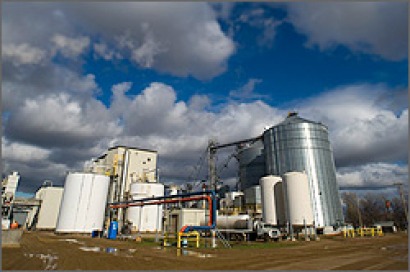
Drop-in biofuels are fuels that can serve as direct replacements or supplements to existing gasoline, diesel, and jet fuels, without any changes to existing fuel distribution networks or engines—and have the potential to significantly reduce US reliance on oil imports. DOE is also offering a total of $32 million in new investments for earlier-stage research that will continue to drive technological breakthroughs and additional cost reductions in the industry.
In his Blueprint for a Secure Energy Future released in March 2011, President Obama set a goal of reducing oil imports by one-third by 2025, increasing energy efficiency, and speeding development of biofuels and other alternatives. As part of that effort, the blueprint directed the DOE, the Navy, and the USDA to collaborate to support commercialization of drop-in biofuel substitutes for diesel and jet fuel, which lead to the current Funding Opportunity Announcement (FOA). This FOA has a two-phased approach, with government and industry sharing in the cost. In Phase 1, applicants will submit a design package and comprehensive business plan for a commercial-scale biorefinery, identify and secure project sites, and take additional required steps spelled out in the announcement. Awardees selected to continue into Phase 2 will submit additional information for the construction or retrofit of a biorefinery. Applications are due by August 13, 2012. See the funding opportunity announcement, and the Blueprint for a Secure Energy Future.
In addition, DOE offered new investments in earlier-stage biofuels research that complement the commercial-scale efforts announced by the Navy and USDA. These early-stage, pre-commercial investments are the latest steps in the Obama Administration's efforts to advance biofuels technologies to continue to lower costs, improve performance, and identify new effective, non-food feedstocks and processing technologies.
The funding announced by DOE includes $20 million to support innovative pilot-scale and demonstration-scale biorefineries that could produce renewable biofuels that meet military specifications for jet fuel and shipboard diesel using a variety of non-food biomass feedstocks, waste-based materials, and algae. These projects may support new plant construction, retrofits on existing US biorefineries, or operations at plants ready to begin production at the pilot- or pre-commercial scale. This investment will also help federal and local governments, private developers, and industry collect accurate data on the cost of producing fuels made from biomass and waste feedstocks. See the full funding solicitation. Applications are due August 13, 2012.
Also, DOE announced $12 million to support up to eight projects focused on researching ways to develop biobased transportation fuels and products using synthetic biological processing. Synthetic biological processing offers an innovative technique to enable efficient, cost-saving conversion of non-food biomass to biofuels. These projects will develop novel biological systems that can enhance the breakdown of raw biomass feedstocks and assist in converting feedstocks into transportation fuels.
The projects – which will be led by small businesses, universities, national laboratories, and industry – will seek to overcome technical and scientific barriers to cost-competitive advanced biofuels and bioproducts. The deadline for applications is tomorrow, 10 July 2012.
For additional information:

